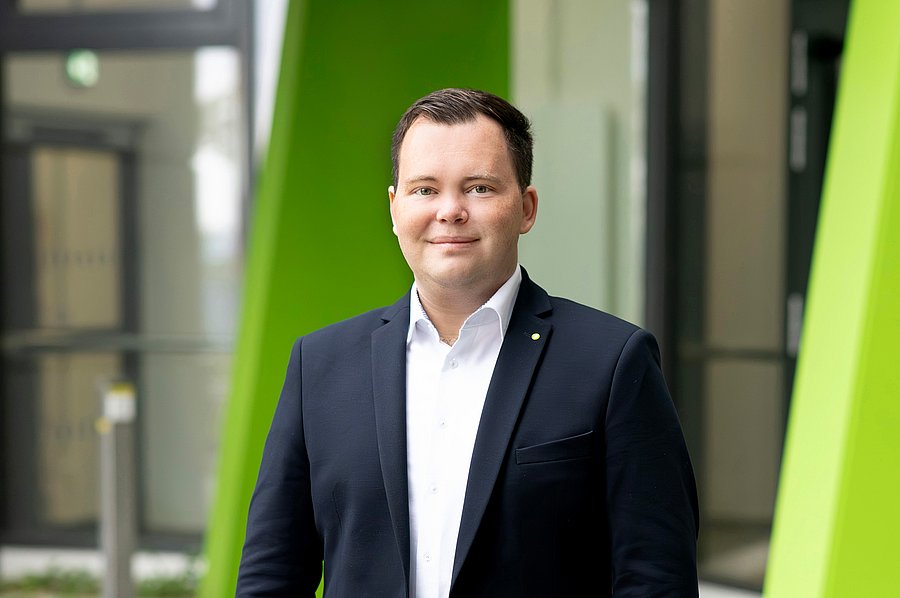Personnel
Secure, understandable, reliable: New paths in software development

Junior Professor Dr Malte Mues // Photo Friederike von Heyden
An important part of his research deals with the question of how to automatically check the security of web applications. Together with colleagues, he has developed methods with which the computer can carry out these checks independently. This involves, for example, finding out which paths a user or attacker can take through a programme to exploit security vulnerabilities. Under certain conditions, it is even possible to mathematically prove that all possible paths have been checked - and that certain errors do not occur in the programme. "Unfortunately, this doesn't always work, which is why I'm currently researching how to reduce the number of paths so that this proof can be provided more often," says Mues.
Another focus of his work over the last two years has been to make complicated programming tasks accessible to people who have no knowledge of computer science. "To do this, I use so-called 'domain-specific languages', i.e. specially adapted tools with which you can create simple and understandable programmes - without any traditional programming," explains the 33-year-old. The aim is to automatically find out whether certain data from large scientific databases is suitable for a planned experiment, using geochemical experiments as an example. Until now, this has mostly been done manually. "Thanks to the new tools, researchers can now carry out reliable analyses even without programming knowledge. This saves time and makes the work more comprehensible and easier," says Malte Mues.
About the person
Born in Wuppertal, he studied IT systems engineering at the Hasso Plattner Institute (HPI) at the University of Potsdam and computer science at Clausthal University of Technology. He completed his doctorate at the Technical University of Dortmund in 2023. He remained there as a postdoc until he joined the University of Wuppertal as a junior professor in March of this year.
